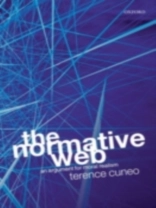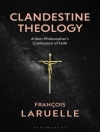Antirealist views about morality claim that moral facts or truths do not exist. Do these views imply that other types of normative facts, such as epistemic ones, do not exist? The Normative Web develops a positive answer to this question. Terence Cuneo argues that the similarities between moral and epistemic facts provide excellent reason to believe that, if moral facts do not exist, then epistemic facts do not exist. But epistemic facts, it is argued, do exist:to deny their existence would commit us to an extreme version of epistemological skepticism. Therefore, Cuneo concludes, moral facts exist. And if moral facts exist, then moral realism is true. In so arguing, Cuneo provides not simply a defense of moral realism, but a positive argument for it. Moreover, this argument engages with a wide range of antirealist positions in epistemology such as error theories, expressivist views, and reductionist views of epistemic reasons. If the central argument of The Normative Web is correct, antirealist positions of these varieties come at a very high cost. Given their cost, Cuneo contends, we should find realism about both epistemic and moralfacts highly attractive.
Terence Cuneo
Normative Web [PDF ebook]
An Argument for Moral Realism
Normative Web [PDF ebook]
An Argument for Moral Realism
Mua cuốn sách điện tử này và nhận thêm 1 cuốn MIỄN PHÍ!
Ngôn ngữ Anh ● định dạng PDF ● ISBN 9780191527371 ● Nhà xuất bản Clarendon Press ● Được phát hành 2007 ● Có thể tải xuống 6 lần ● Tiền tệ EUR ● TÔI 2272997 ● Sao chép bảo vệ Adobe DRM
Yêu cầu trình đọc ebook có khả năng DRM












